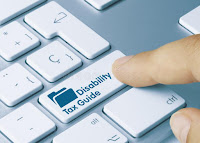I've written a fair bit over the years about the Disability Tax Credit ("DCT"); primarily how worthwhile it is to have and how difficult it is to be approved. Finally, some good news.
In order to qualify for the DTC, a medical practitioner must certify that you have have- a severe and prolonged impairment in one of the specified categories;
- a significant limitations in two or more categories, or
- receive therapy to support a vital function.
The good news is that the eligibility criteria for mental functions and some other disabilities has been expanded and made retroactive to January 1, 2021, so even if you previously applied and were refused, you might just get there now.
The various categories are set out below, but I'm going to focus on "mental function" today. You can view the previous (2020) and expanded criteria to qualify under mental function here.
As just one example of the changes, previously only adaptive functioning, memory and judgment were considered under the heading "mental function". Now, in addition to the above, attention; concentration; goal setting; perception of reality; problem solving; regulating behaviour and emotions; and verbal and nonverbal comprehension will be considered.
The requirements of what can be considered under each of the above items have also been expanded to allow for consideration of more things. For example., when looking at adaptive functioning, for the first time adapting to change, expressing basic needs and going into the community will be considered.
One of my personal favourites, when looking at judgment, previously only things such as following treatment prescribed by a doctor and selecting clothing appropriate to the weather were considered. Now, in addition to the above, recognizing the risks of being taken advantage of by others and understanding the consequences of your actions will also be considered. Anyone who has dealt with a representation application (formerly known as adult guardianship) knows just how important those last two things are to safety and functioning in everyday life.
It's a little confusing to explain some of the changes, so I strongly recommend you check out the both the previous and new more inclusive list of items considered for yourself.
As I said, we have only looked at the criteria under "mental functions" in this post, but as noted above there are changes in the criterial for other types of disabilities, too, such as
- the recognition of more activities in determining time spent on life-sustaining therapies;
- a decrease in the required frequency of life sustaining therapy (now requires a minimum of two times per week as opposed to three); and
- including individual with Type One diabetes under the heading "life sustaining therapy".

No comments:
Post a Comment